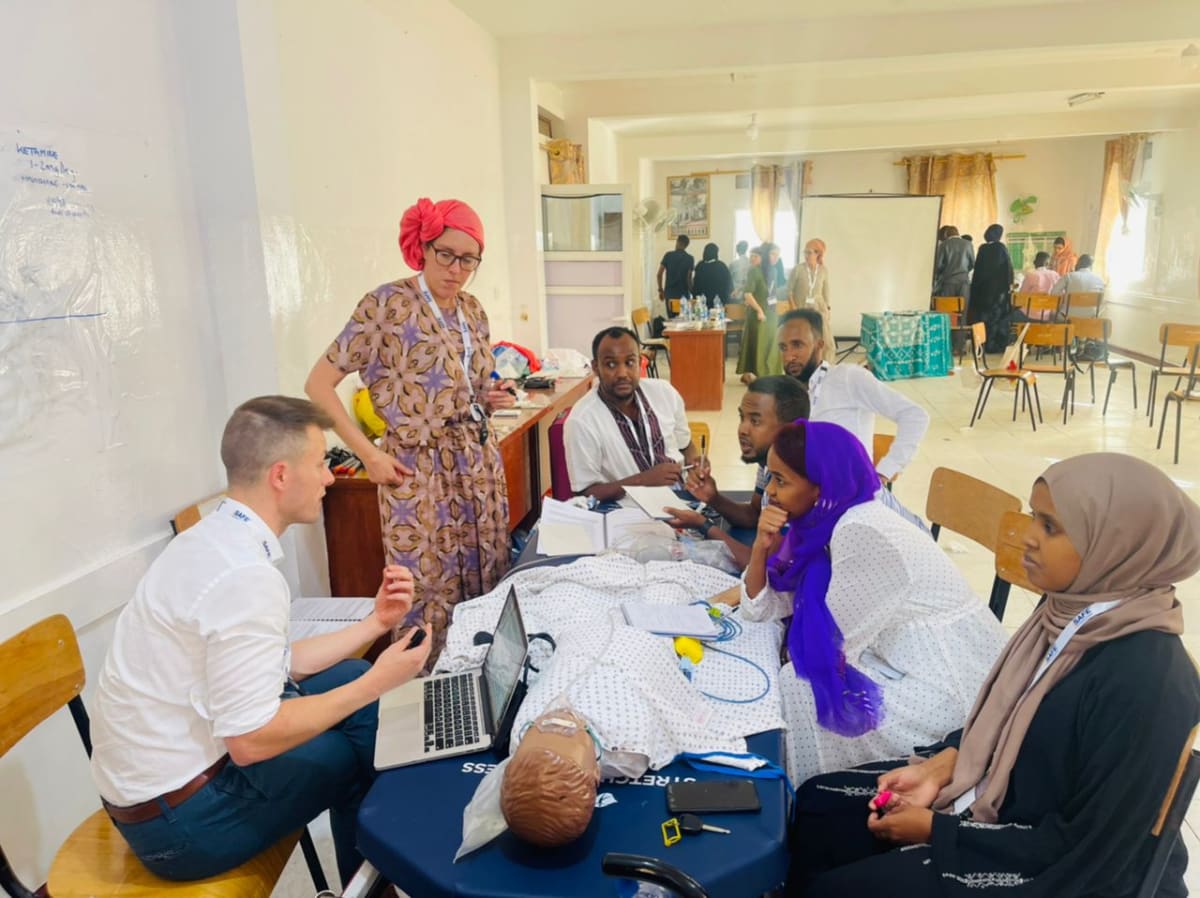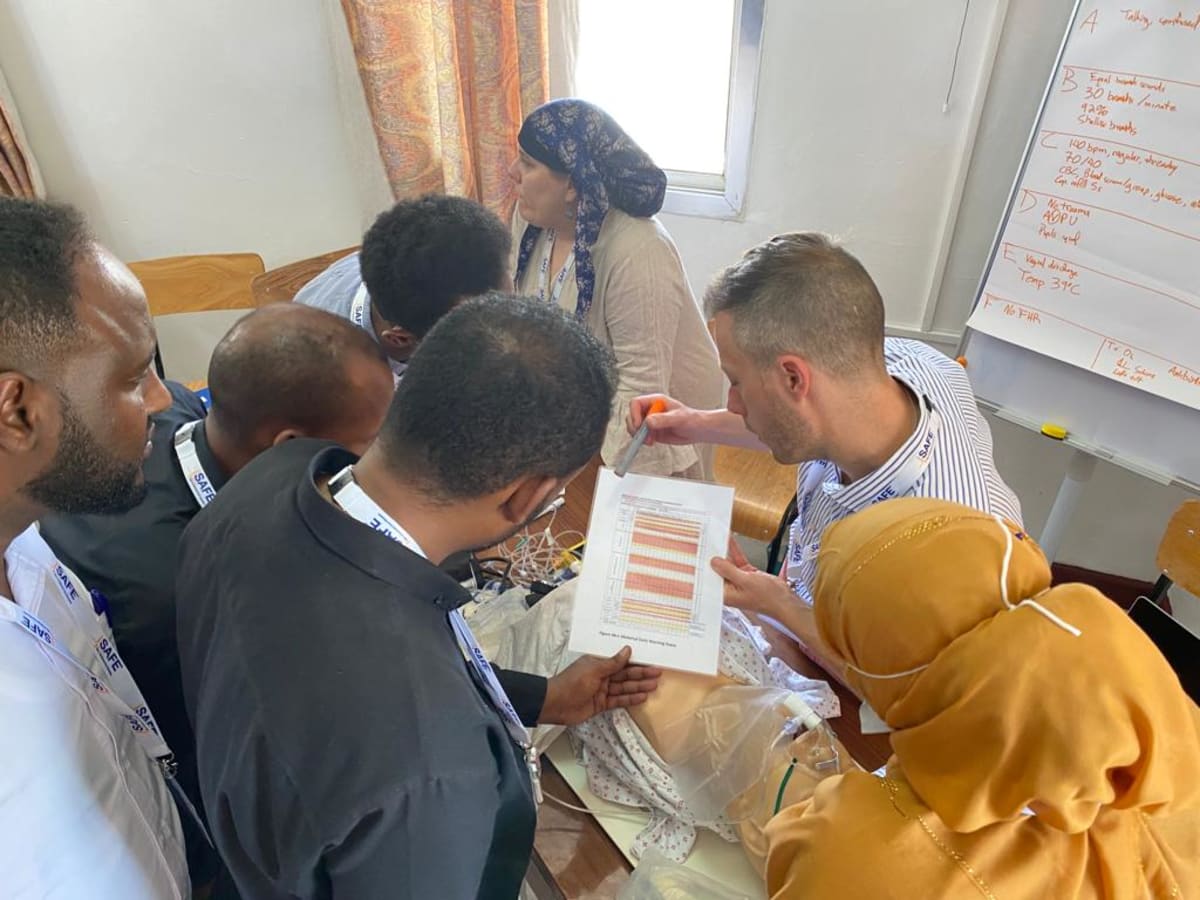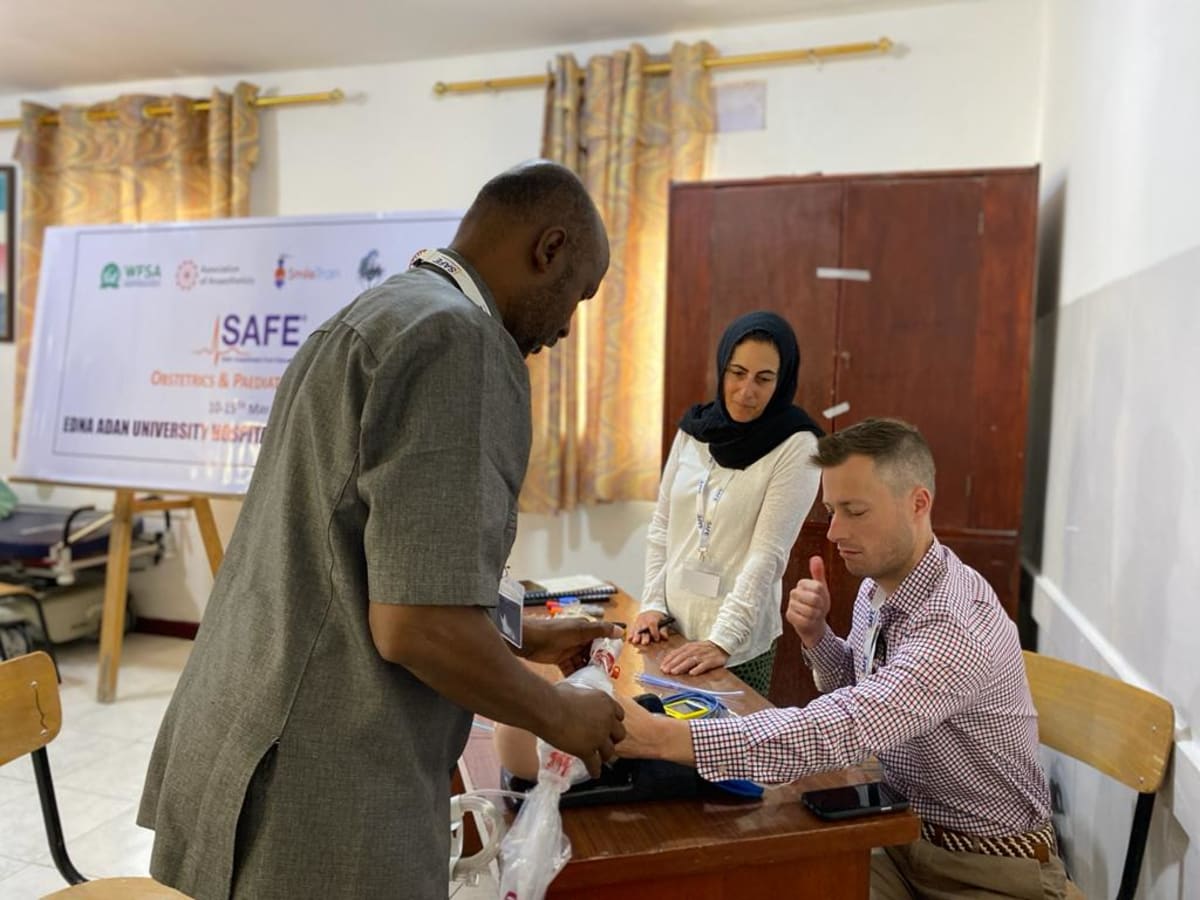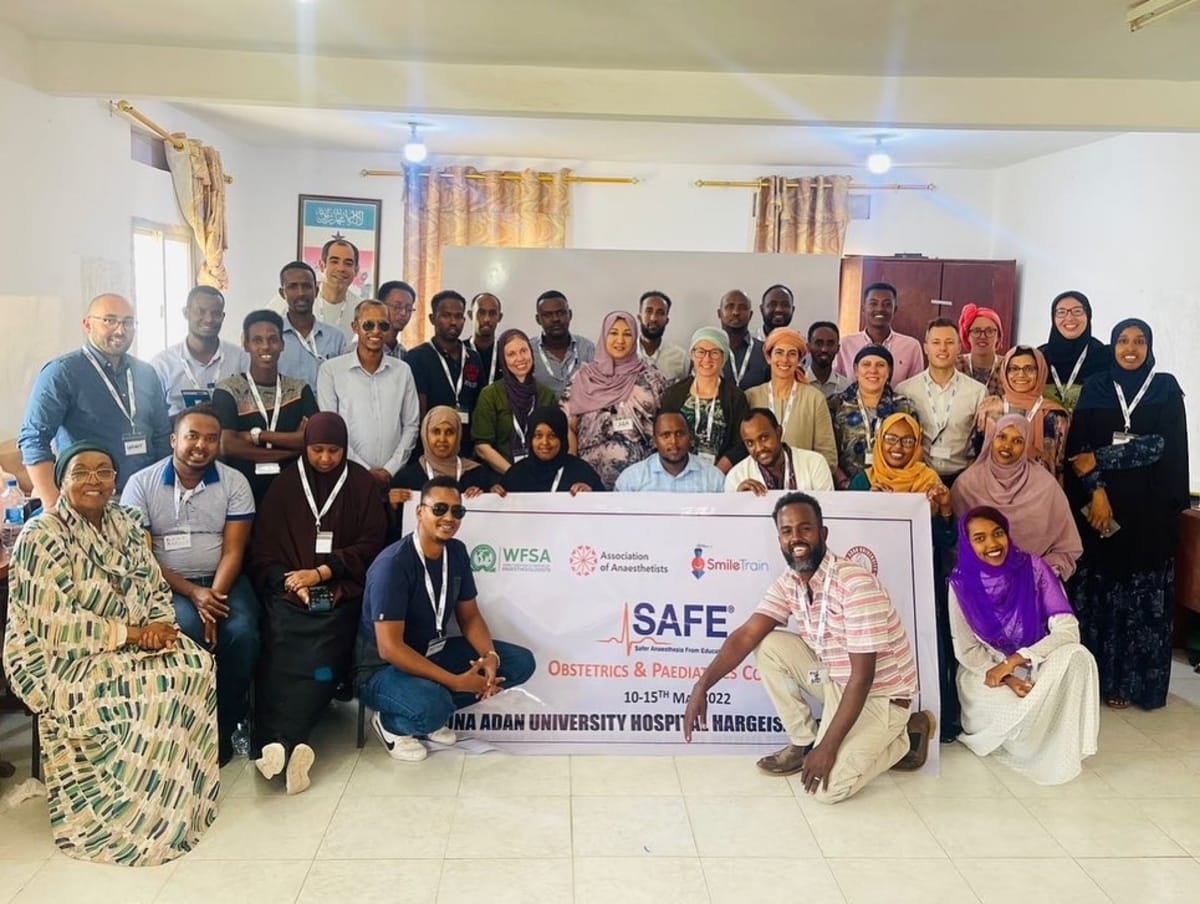I have been invited to serve as a faculty member on the Safer Anaesthesia From Education (SAFE) project, a joint project started in 2011 by the Association of Anaesthetists of Great Britain and Ireland and the World Federation of Societies of Anaesthesiologists. The goal of this project is to train local anesthesia providers in low- and middle-income countries (LMICs) in the provision of safe anesthesia care to pediatric and obstetric patients. This is important because data shows that the density of anesthesia providers in LMICs is far less than in high-income countries (HICs). At the same time, perioperative mortality can be twice as high compared to HICs, despite surgical patients in LMICs having a lower risk profile. Anesthesia providers play a crucial role in the delivery of safe care in the perioperative setting, and thus training anesthesia providers to deliver the safest care possible should be of the utmost importance. To date, over 100 SAFE courses have been delivered and over 500 providers have been trained.
I will be helping facilitate two of their courses, SAFE Paediatrics and SAFE Obstetrics, at Edna Adan University in Somaliland. In this role, I will be teaching local anesthesia providers principles in providing safe anesthesia care to pediatric and obstetric patients. Each three-day course will teach participants about the routine anesthetic care of these patient populations, as well as urgent and emergent care. At the end of the course, participants will be better equipped to deliver safer, more effective anesthesia care.
References
https://anaesthetists.org/Home/International/Our-international-work/Safer-Anaesthesia-From-Education-SAFE
Biccard, et al. "Perioperative patient outcomes in the African Surgical Outcomes Study: a 7-day prospective observational cohort study." Lancet, 2018; 391 (10130), 1589-1598.
Kempthorne, et al. "The WFSA Global Anesthesia Workforce Survey." Anesth Analg, 2017; 125 (3), 981-990.
The course in Somaliland aims to train 32 local anesthesia providers, all of whom are either non-physician providers with varying levels of formal training in anesthesia care, or providers with no formal training in anesthesia care. Somaliland has no physician anesthesiologists and an extremely low density of non-physician anesthesia providers (0.29 per 100,000; this statistic is for Somalia, included Somaliland). Therefore, it is necessary to strengthen and scale-up the anesthesia providers there to provide safe, effective care to the pediatric and obstetric patients of Somaliland.
According to UNICEF, as of 2012 Somaliland had one of the worst maternal mortality rates in the world. Well-trained anesthesia providers are indispensable in the care of obstetric patients, particularly those presenting for surgical intervention and for managing complications of any peripartum setting, such as postpartum hemorrhage. Additionally, a recent study of pediatric surgical patients found that nearly 75% of surgical conditions identified were not treated. As anesthesia providers are essential in providing surgical care, efforts aimed at scaling up the provider density should be undertaken.
References
Kempthorne, et al. "The WFSA Global Anesthesia Workforce Survey." Anesth Analg, 2017; 125 (3), 981-990.
Concepcion, et al. "Prevalence of Pediatric Surgical Conditions Across Somaliland." JAMA Netw Open, 2019; 2 (1), e186857.
By the end of the courses, I will have helped train anesthesia providers in Edna Adan Hospital, Hargeisa hospitals and other facilities within Somaliland. These providers will be better equipped with knowledge and skills to manage a variety of obstetric and pediatric perioperative conditions and emergencies, thus facilitating their involvement as members of the team and improving the quality of obstetric and pediatric care in Somaliland. Furthermore, this cohort of anesthesia providers will help to address the health disparities experienced by obstetric and pediatric patients highlighted previously.
There will also be a Training of Trainers component of the courses, in which I will help train a small cohort of anesthesia providers as SAFE trainers. This cohort will be able to hold future refresher SAFE courses as well as provide continuing education for anesthesia providers in Somaliland.










We were very grateful to be hosted by the anesthesia providers of Somaliland, where we worked with them to run the Safer Anaesthesia From Education (SAFE) Paeds and SAFE Obs and courses. These courses foster hands-on learning for anesthesia providers, and teach best practices for caring for paediatric and obstetric patients when they oreeent for anesthetic care.